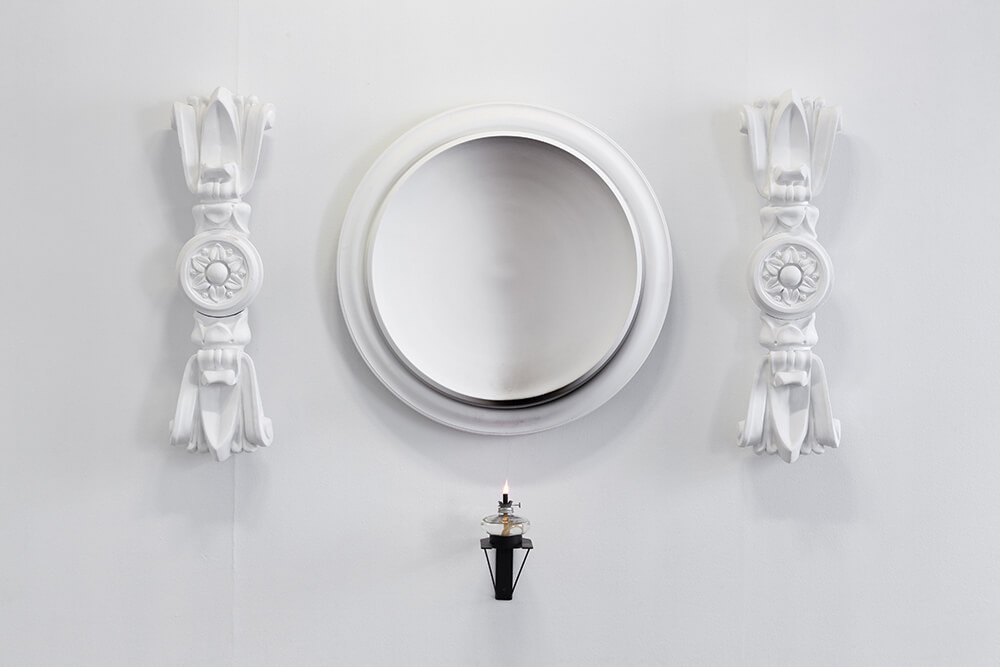Decolonial Curatorial Methodology (2024-2027)

Myriam Amroun and Natasha Marie Llorens
VR Artistic Research Project: 2023-00672
Myriam Amroun and Natasha Marie Llorens propose curatorial practice as a form of artistic research that goes beyond “metaphorizing decolonization,” or research that is grounded in the practice of curating an exhibition.
The practice-based focus is key: neither the artworks eventually presented nor the exhibition itself represent the culmination of our research; rather they are units of research which allow us to ask methodological questions. The structure of the budget will allow us to interrogate the value placed on “international” standards. We will consider how hierarchy asserts itself, and which forms of hierarchy can be deconstructed towards a decolonial aim, where power is exerted with a Eurocentric bias, and which assumptions about aesthetics and artistic relevance must be dismantled within ourselves and our collaborators. We will examine the role national and international infrastructures play in shaping an exhibition and its visibility at different levels of the artworld. We will reflect on how visibility supports or resists instrumentalization by neo-colonial interests in art. We propose that this practice—in its most banal and in its most marvelous forms—engages with the call to decolonize the arts from an embodied perspective. To achieve this aim, we propose a methodology based on transnational solidarity.
We are specifically interested in what Françoise Lionnet and Shu-mei Shih call “minor transnationalism,” which is defined as a way of enacting transnationalism at an individual scale1 As independent curators, the emphasis on the minor character of our transnational movement aims to maintain networks of solidarity outside of the global marketplace and the major institutions that support it. We borrow from and join Arjun Appadurai in insisting on local or minor forms of transnationalism which are based on relational affinity, grounded in cultural expression and site-specific aesthetics, and process-oriented at a local scale—all are necessary for decolonial practice.2
Crucially, our project is not about decoloniality in Sweden or Morocco, nor is it about indigeneity in Sápmi or in Amazighen. It is a project about transnationalism that links two regions based on our own respective positionality—from where we are speaking—, and the delicate historical relationship between them that results from each region’s position on the margins of the European project. The exhibitions are proposed for institutions’ whose histories of engagement with decoloniality are prominent within their regions, and yet which are not easily defined by nationalism. The curatorial process, including the exhibitions’ translation across national and infrastructural contexts, will be documented in a cumulative publication.
The project has four principle aims:
To centre the knowledge produced by the practice of curating (rather than that which it simply presents in the exhibition) and document it.
To experiment with infrastructures that support minor transnational relationality and document it.
To experiment with institutional scale in relation to the exhibition and reflect on the experiment.
To work from and between two important margins of the European project—the Nordic region and North Africa—in an embodied manner that nevertheless acknowledges our distance from both.
Taken together, these four aims form a research project and contribute to a growing field of artistic research in curatorial practice that centres relationality over curatorial intention, long-term collaborative processes over individual-driven exhibition-making, and minor transnational networks of solidarity among cultural producers.3
- Françoise Lionnet and Shumei Shih, Minor Transnationalism (Durham, N.C: Duke University Press, 2005). ↩
- Arjun Appadurai, Modernity at Large: Cultural Dimensions of Globalization (Minneapolis (Minn.): University of Minnesota Press, 1996). ↩
- In 2021, The Swedish Research Council funded two projects that are part of the same field of artistic research. ↩